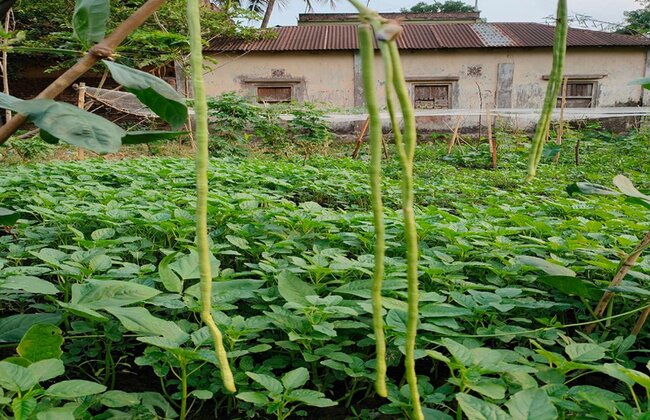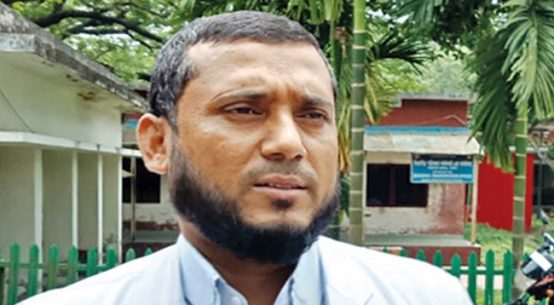
Belly Begum, 35, has become economically solvent through farming of safe vegetables as its demand is increasing gradually everywhere in the society.
A resident of Dighipara village under Paba Upazila in the district, Begum is earning cash money through selling varieties of vegetables, including red amaranth, spinach, bottle gourd and Indian spinach (puishak), at present.
With full-length support from her husband and children, she is growing the chemical-free safe vegetables.
“I’ve learnt about the importance of bio-fertilizer, seed conservation and seed exchange,” she said, while talking to BSS at her house on Saturday.
She has also learnt about proper and sustainable use of land to protect its productivity.
She continued that her vegetables are chemical free and most of those are sold from her house regularly. That’s why she does not often need to take those vegetables to market for sale.
In a choked voice, she stated that her previous life wasn’t pleasant and she struggled to enhance her family income.
To get rid of poverty, she started growing vegetables in her homestead side by side with rearing poultry birds and goats.
Currently, she can fulfill the nutrition demand of her family members through consuming the chemical free vegetable and milk and meat from domestic animals.
Being inspired from Begum’s success, many other neighbours have been growing vegetables in their respective homesteads applying organic methods for the last couple of years.
“I cultivated bottle gourd, cucumber and coriander on 16 decimals of land beside our homestead by using organic fertilizer this year, and I got expected production,” Ali Hossain, a farmer of Baroipara village, said.
Banera Khatun, 36, wife of Sabdul Mian in Darusha village, said, “We have been producing chemical-free vegetables, using vermi-compost. We are also selling some vegetables in the local market after meeting the family’s demand.”
Anwar Hossain, 40, a farmer at Alipur village in Durgapur upazila, said chemical-free vegetables are in high demand at the village, and locals are purchasing the vegetables at higher prices.
Jahangir Alam Khan, Coordinator of Integrated Water Resource Management (IWRM) Project, said the villagers cultivate crops and vegetables in the cultivable lands and homesteads round the year using local resources contributing a lot towards meeting the local demands.
“We are motivating the marginalized communities, including the ethnic minorities, to enhance their family income through homestead gardening after the best uses of organic resources,” he said.
The IWRM project is being implemented in drought-affected 39 Union Parishads and three Pourasavas in Rajshahi, Chapainawabganj and Naogaon districts since 2015.
DASCOH Foundation and Swiss Red Cross are jointly implementing the project supported by Switzerland with the main thrust of protecting crops from any drought like situation.
Jahangir Khan mentioned that the marginalized farmers, including ethnic minority ones, are seen deriving benefits of the organic method vegetable farming in Barind areas for the last couple of years.
Khayer Uddin Mollah, zonal deputy director of Department of Agriculture Extension (DAE), said farmers have started growing chemical-free vegetables, using organic manure like vermin-compost, in the region including its vast Barind Tract.
Gardening around homesteads in the current season through using organic fertilizer has started gaining ground with production of different fruits and vegetables in safe and hygienic ways, he said.
Besides, marginal farmers and the poor people are mostly engaged in this venture by making the best use of spaces around their homes over the last couple of years.


